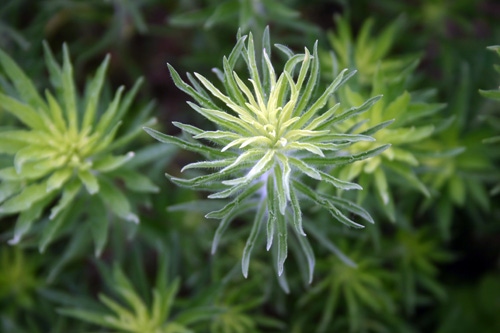
Resistant weeds: long-term goals vs. survival
Herbicide resistance has the potential to reduce land values, influence rental agreements, drive input costs up and threaten conservation tillage systems among other things.If you have a resistant weed problem, the days of planting into anything you wanted to and nuking the existing weeds with glyphosate is over.Is there a place for a government program to conserve herbicide technology?
October 11, 2010

Herbicide resistance management puts a lot of growers between a rock and hard place.
The so called “smart folks” like me are telling you that you need to be thinking five years down the road in your cropping systems, herbicide and herbicide tolerant trait rotations. On the other hand, it seems like growers are always just trying to survive to get to farm again next year.
I am constantly told, “I can not look any further forward than just trying to survive this year.” However, everyone trying to survive this year would like to know they are into farming for the long haul.
Herbicide resistance has the potential to reduce land values, influence rental agreements, drive input costs up and threaten conservation tillage systems among other things.
We have already seen die-hard no-tillers have to plow land in an effort to disrupt the glyphosate-resistant marestail cycle. We are also getting a lot of questions about deep plowing to bury weed seed and also about the use of older preplant incorporated herbicides for resistant pigweed control.
One thing that was glaringly evident this year is you can not plant into emerged resistant Palmer pigweed infestations and consistently be successful. I saw far too many fields last summer with 2-foot pigweeds and two-trifoliate soybeans. That program won’t work.
That means unless an early preplant herbicide program like Valor or Envive keeps the field clean until planting, tillage may be the only option — depending on the size of the weeds.
If you have a resistant weed problem, the days of planting into anything you wanted to and nuking the existing weeds with glyphosate is over. (Tell us which strategies are most important in our latest DFP Poll.)
Earlier in the year I was on a tour with some forward-thinking farmers and one brought up the idea of government programs for conserving herbicide technology. Why not? Most of us would like to have less government instead of more government. I am totally against government intervention or mandates in our weed management programs. Government incentives, however, are different.
For the most part government agencies have looked at weed problems as something for scientists and chemical companies to solve. For the most part this system has worked. However, we are running out of technology.
Several politicians have asked, “What can we do about the herbicide resistance problem?” While not my idea, I think a government program to conserve herbicide technology deserves consideration. We have spent billions on programs like conservation tillage. The imminent threat of resistant weeds to conservation tillage, alone, is a reason this idea has merit.
I am also asked, “Do the universities need more money for research?” The answer is absolutely! However, if we continue to use up our herbicides and herbicide technologies one at the time, the researchers are fighting with their hands tied.
If we had a program for conserving herbicides and herbicide technologies, one of the things I would like to see it do is help support rotation crops that may be less profitable than soybeans, for example. Therefore, if a grower had to plant dryland corn or grain sorghum in a field that is in trouble due to growing continuous soybeans, some support could make this feasible.
Perhaps this would provide the grower who is looking at surviving this year an incentive to consider an alternative crop for resistance management.
While I do not have any detailed ideas, perhaps what I have floated will create some dialog and let folks a lot smarter than I do something with it. As a weed scientist, I have never considered my role any more important than that of anyone else involved in producing a crop. However, I can tell you when you can’t control the weeds, the rest of the production system crashes.
About the Author(s)
You May Also Like



